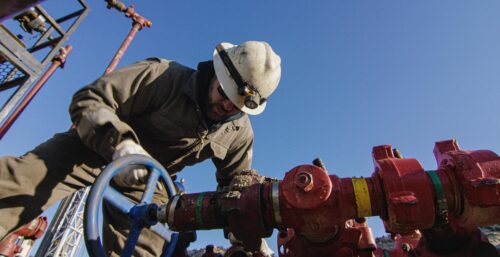
Report | 2023
Accelerating Methane Reductions with Robust Independent Certification
An MiQ Case Study
Reducing methane emissions is a top priority and a significant opportunity to avoid the worst consequences of climate change. The highly potent greenhouse gas (GHG) is over 80 times more powerful than carbon dioxide (CO2) over a 20-year period, and the oil and gas industry accounts for at least one-quarter of human-made methane emissions.
RMI and SystemIQ developed MiQ to address the limitations of emerging voluntary actions and policies in holistically addressing methane emissions. Now an independent non-profit, the MiQ certification program serves as an exemplary case study highlighting how technically robust, open-source, and independent performance standards that can be adopted rapidly and applied broadly can accelerate a climate-differentiated market for gas. MiQ certifications are third-party verified at the facility level and are based on three pillars: company practices, monitoring technology deployment, and methane intensity. Certified facilities receive an audited grade ranging from A to F, differentiating their methane emissions performance and incentivizing continuous improvement.
RMI’s Supply Chain Emissions Initiative takes a similar approach for other products, with a unifying focus on the establishment of supply-chain segment-level emissions accounting standards. MiQ is an example of these principles in action, as certification is now driving measurable emissions reductions by leveraging market forces to accelerate climate action.